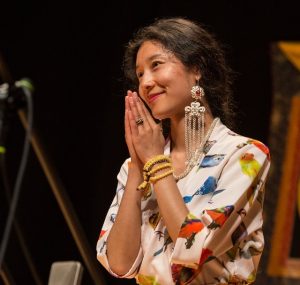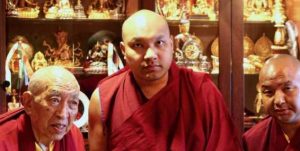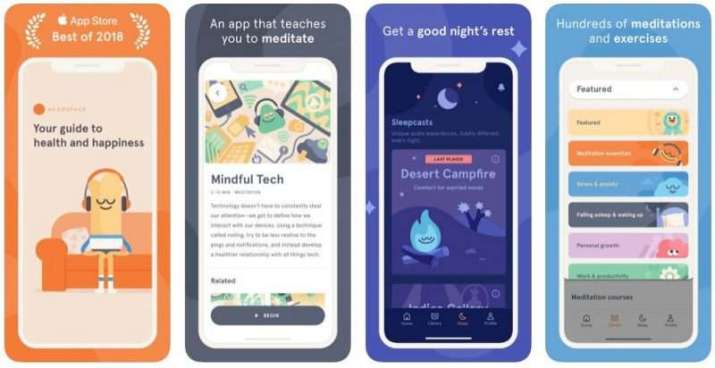
One of the most troubling effects of the pandemic has been the increase in mental health difficulties, primarily depression and anxiety. People around the world have faced disruptions to routines, loss of jobs and income, and isolation, both as a public health measure and if they have been infected with COVID-19. As a way to cope with stress, many are turning to mindfulness apps, with downloads of leading apps doubling in 2020.
Two of the leading apps being used today are Calm, which features a broad range of teachers and techniques for meditation and stress relief, and Headspace, founded by one-time Buddhist monk Andy Puddicombe, which focuses on courses aimed at cultivating mindfulness. For Puddicombe, the connection to Buddhism has helped shape the direction of his company. “We decided very early on to focus on two things, and that’s authenticity and science. We feel that we didn’t come up with these things. Meditation has been around for sort of two-and-a-half, three thousand years. And we look at that as R&D. And that’s a lot of R&D.” (Yahoo Finance)
Today, both apps have branched out into a wide variety of offerings. Calm has recruited top celebrities to record soothing nighttime stories for adults finding it difficult to sleep, and has created a 10-episode TV series, A World of Calm, available on HBO Max. Headspace has likewise launched a TV series on Netflix this month, Headspace Guide to Meditation (2021), with two further series planned.
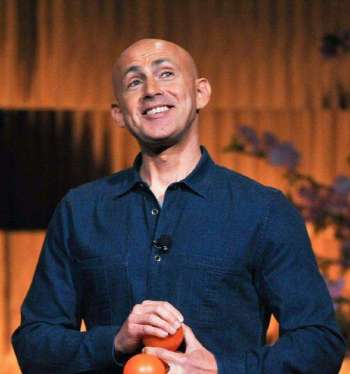
Sam Rogoway, chief product and content officer at Headspace, describes the company as a “multiplatform content studio creating and distributing mindful-living content through premium TV and film projects, thought-provoking podcasts, inspirational digital content, and partnerships with world-class talent and experts.” Moving far beyond the basic Buddhist teachings such as body scans and awareness of one’s breath, Rogoway adds: “We believe that mindfulness should incorporate all areas of one’s life, not just when we sit to meditate. So we’re constantly expanding our offerings to make Headspace as valuable for our members as possible.” (The Hollywood Reporter)
For many, the apps and associated media offer a needed break from the increased stresses of life during the global pandemic. People turning to mindfulness apps early on suggests that people knew about them but simply hadn’t yet felt the need to try them. Puddicombe noted the growth in the past years: “Yeah, I think, you know, early on in the pandemic, I would say even if you go back and rewind to sort of March and April of last year, we saw downloads sort of double overnight. And a huge amount—as you say, huge amount of attention, I think, recognition that it wasn’t just physical sort of illness that people were in danger of.” (Yahoo Finance)
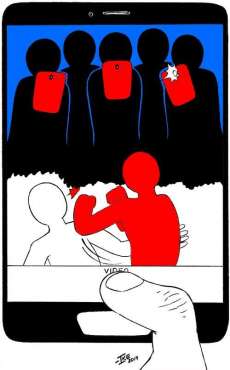
A study conducted by the US Centers for Disease Control and Prevention (CDC) found a tripling of anxiety symptoms and a quadrupling of signs of depression among adults surveyed in 2020 compared with a 2019 sample. Another study, led by Catherine Ettman of the Boston University School of Public Health, found a tripling of a prevalence of depressive symptoms. These numbers, noted Ettman, were “higher than what we’ve seen after other large-scale traumas like September 11, Hurricane Katrina, and the Hong Kong unrest.” She added that the group in the US with the single largest rise in depression—up fivefold—was of Asian ethnicity. Psychiatrist Ruth Shim suggested that a likely factor could be the increase in racism against Asians since the pandemic began. (Scientific American)
Researchers also noted that a strong correlating factor among those most affected was increased engagement with media coverage of the pandemic. Experts recommend limiting media consumption—including social media—and instead seeking to keep up relationships with friends and family via phone, Zoom, and other COVID-safe methods. Along with these, a growing body of evidence suggests that mindfulness can be of benefit for all, including children and teenagers.
See more
How Headspace is helping users cope using meditation amid COVID-19 (Yahoo Finance)
The Surprising Mental Toll of COVID (Scientific American)
From Harry Styles to Kevin Hart: New Content Studios Are Selling Meditation and Sleep With Stars’ Help (The Hollywood Reporter)
How kids can benefit from mindfulness training (The Conversation)
BONUS: Breathe (NPR)





